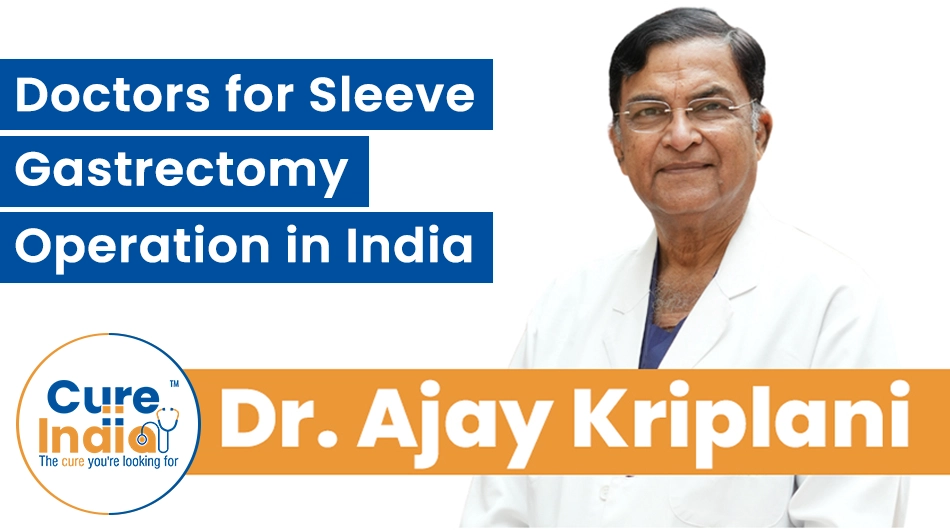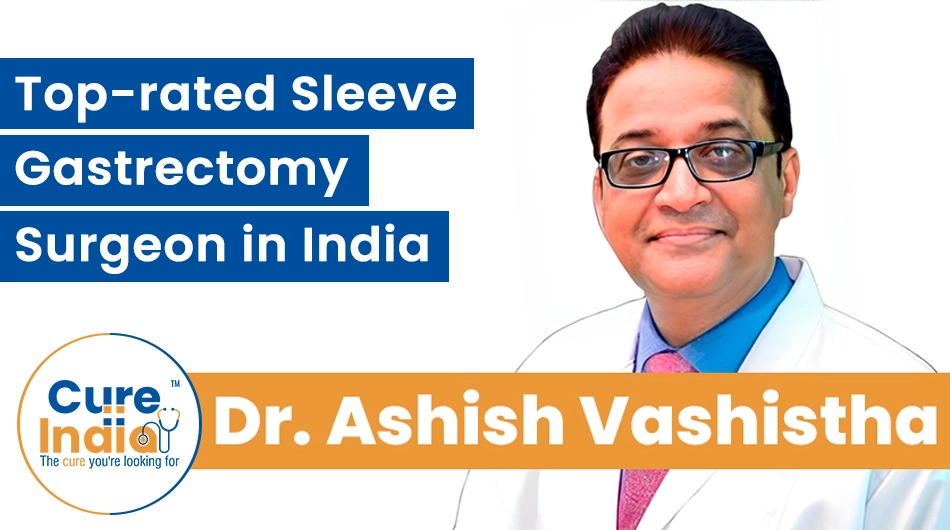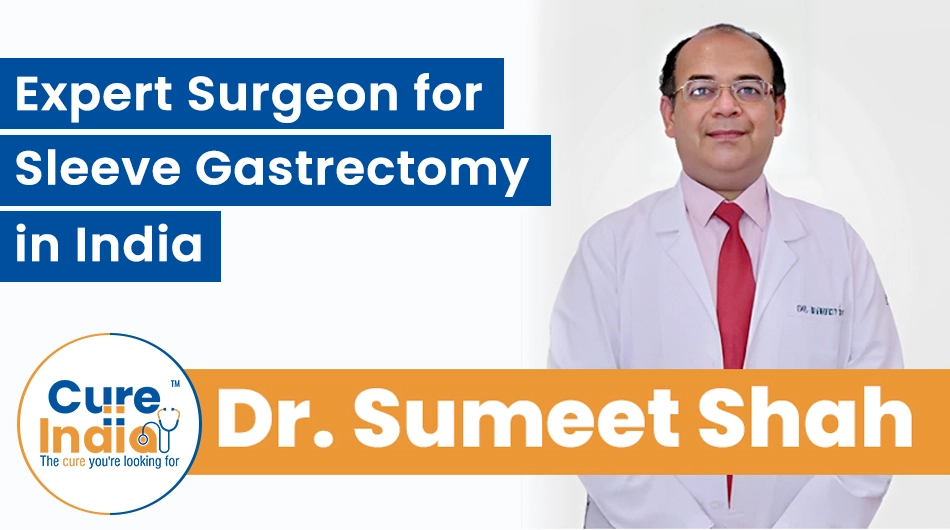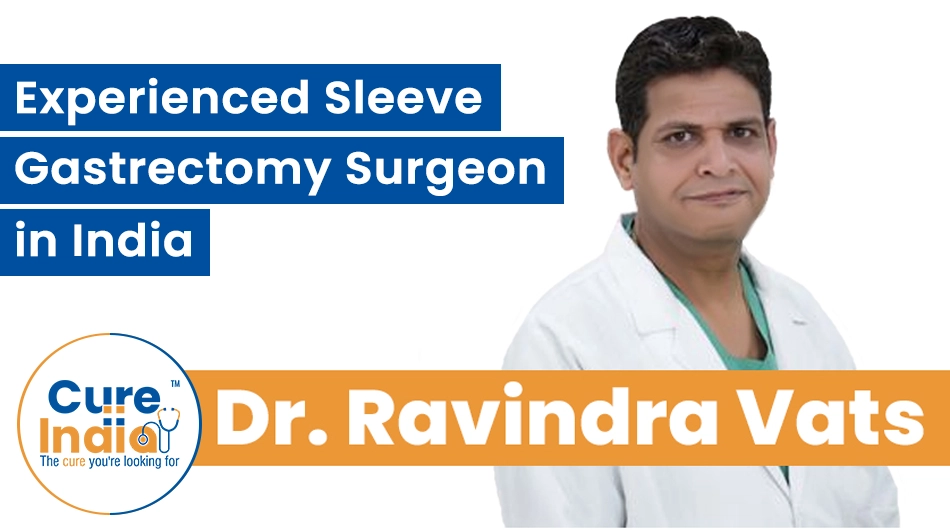

Sleeve gastrectomy is a type of bariatric surgery that is also known as gastric sleeve surgery. It is a surgical procedure that is mainly used as a weight-loss surgery. This surgery involves removing about 80% of the stomach from the body and leaving a banana-shaped stomach, which is referred to as a sleeve. Doing so will directly affect the amount of food you consume. As the size of the stomach is reduced, you will feel full after eating only small portions of food, and it will prevent you from overeating. In addition to this, the hormones that make you feel hungry will also be reduced due to this procedure. Hence, your cravings and appetite will be reduced drastically, and this will eventually help you lose extra weight.
With an increase in sedentary lifestyles and an increase in consumption of fast, junk, highly processed, and packaged food worldwide, the obesity rate is rapidly increasing, and more people are suffering from many diseases caused by obesity. Obesity is considered an enemy of a healthy body as it gives rise to many illnesses in the body, such as Type 2 diabetes, cardiovascular diseases, hypertension, and many more. In addition to this, many low- and middle-income countries have insufficient healthcare systems and are therefore unable to provide the proper medical treatment. Due to this reason, a lot of people from many different countries travel to other countries seeking proper gastric sleeve operation.
For instance, many people from African countries like Kenya, Congo, Tanzania, and Zambia are travelling to India for various treatment procedures, one of them being sleeve gastrectomy operation in India. The African patients choose India because they have gained the trust of the Indian healthcare system due to premium medical service. In addition to the best medical care, the treatment in India is highly profitable and affordable to them as compared to many other countries. The visa application is easy, and they have the option to choose one of the many different packages that India provides. Also, the Indian sleeve gastrectomy hospitals provide 24/7 access to a patient support system, and they can call anytime to ask any query that they have.
Depending upon what part of the stomach is removed, there are different sleeve gastrectomy types. They are mentioned below.

It is also known as complete gastrectomy. In this procedure, the stomach is completely removed from the body, and the oesophagus (food pipe) is then directly connected to the small intestine.
It is also known as subtotal gastrectomy. In this procedure, only the lower half of the stomach is removed, and the duodenum (the first part of the small intestine) is also closed. After that, the remaining stomach is connected to the lower part of the intestine.
In this procedure, the left side of the stomach is removed. It is also known as vertical sleeve gastrectomy.
In this procedure, the top part of the stomach along with the part of an oesophagus (also known as a gullet) is removed.
The main purpose of the sleeve gastrectomy operation is to help in losing extra weight of the body. It also helps in managing many different illnesses in the body that are caused by chronic obesity. The diseases that can be managed by gastrectomy procedures are listed below.
The main goal of a sleeve gastronomy is to help patients manage their body weight, and hence, it can cure and reverse many illnesses in the body that are caused by excess body weight. Obese people can have the maximum benefits from this surgery. The benefits of this procedure are listed below:





Many people from African nations like Kenya, Ethiopia, Tanzania travel to India seeking the best treatment at minimum cost. Indian surgeons have mastered different types of surgeries by regularly upgrading the treatment procedures. Indian hospitals provide premium services at low cost. For sleeve gastrectomy, India provides treatment like Laparoscopic adjustable gastric band, Gastric bypass, Gastric sleeve, and Biliopancreatic diversion with duodenal switch. The cost of Sleeve Gastrectomy in India is very less than the cost in other countries.
Indian hospitals provide various types of bariatric (weight loss) surgeries whose cost range starts from $2,160 with an average cost of $3,577, and it may extend to a maximum cost of about $3,601 to $6242. The total cost of weight-loss surgeries in India is influenced by many factors, including gastrectomy type, surgeon’s fees, choice of city and hospital, travel cost, insurance coverage, medication cost, patient’s overall health, age, etc. The cost for sleeve gastrectomy in India are listed below.
| Treatment | Cost in India | Stay in India |
|---|---|---|
| Sleeve Gastrectomy Operation in India | $5,000 | 7 Days |
As you can verify from the cost list mentioned above, the average cost of gastrectomy procedures is much lower in India. You can compare it with the cost in the USA ($7,500 to $30,000), the UK ($5,048 to $18,957), and Australia ($13,162 to $16,452).
During the sleeve gastrectomy operation procedure, the surgeon either removes the entire stomach or only a portion of your stomach. This can be done by two methods: an open surgery and a laparoscopic surgery. The main difference between these two methods is that open surgery requires only one but a large incision, while laparoscopic surgery requires multiple but small incisions. In open surgery, your surgeon will perform the surgery directly, whereas in laparoscopic surgery, your surgeon will use a medical device named a laparoscope to visualise the internal part of your abdomen and perform the surgery while looking into the TV monitor.

A laparoscope has a tiny camera and a lighting device that shows the live video on the TV monitor as the surgeon performs the surgery. Both of these procedures are done after putting you under general anaesthesia, which will make you unconscious so that you don’t feel any pain during the surgery. Your surgeon will follow these steps to complete the surgery.
In most of the cases, the surgeon uses dissolvable stitches to close the incision made on the abdomen. These stitches get absorbed by the body over time. However, if your surgeon has used non-dissolvable stitches, you will be given a follow-up appointment to remove the stitches.
After the total gastrectomy surgery is completed, you are most likely expected to spend at least a day or about 3 days at the hospital. After the surgery, you will be taken to a recovery room where you will be monitored. Your heartbeats, blood pressure, and breathing will be monitored, and along with that, your surgical site will also be monitored. Your nurse will give you fluids through an IV placed on your arm. For about 3 days to 1 week post-surgery, you will need to only rely on a liquid diet and avoid solid food. As you slowly start to heal, you can start consuming soft, solid food, and over time you can gradually get back to your normal food. However, make sure that you only consume healthy food after the surgery.
You will leave the hospital once your surgeon has checked everything and it all seems alright. Before you go home, your surgeon will discuss some points that you must follow after this procedure. He will guide you about what dietary and lifestyle changes you need to follow and how much exercise is enough for the first week after the surgery. He/she will also guide you about how to take care of the surgical wound. You will be prescribed some medications for pain and other present conditions in your body. Your medical team will also recommend multivitamin and mineral supplements, including B12 and calcium, to consume for at least 1 month.
A sleeve gastrectomy operation in India is known to help people lose weight and eventually cure the diseases that are caused by obesity. It involves making the stomach smaller, and hence you will consume fewer calories every time you have a meal. There are many types of gastrectomy procedures available in Indian hospitals. Year by year, obesity rates are increasing drastically due to the poor lifestyle and eating habits of the majority of people. In addition to unhealthy food consumption, many people are now living a sedentary life due to an increase in office work and other jobs that require sitting for long hours. This causes obesity, and obesity further attracts other diseases in the body. Maintaining a healthy weight and gut health can impact the overall health and fitness of a person, and one way to achieve that is by having bariatric operations like gastric bypass surgery and a gastric sleeve operation. This surgery helps people who are suffering from chronic obesity and multiple medical conditions. Due to affordability and highly trained doctors, India is one of the best places to get a gastric sleeve operation.
